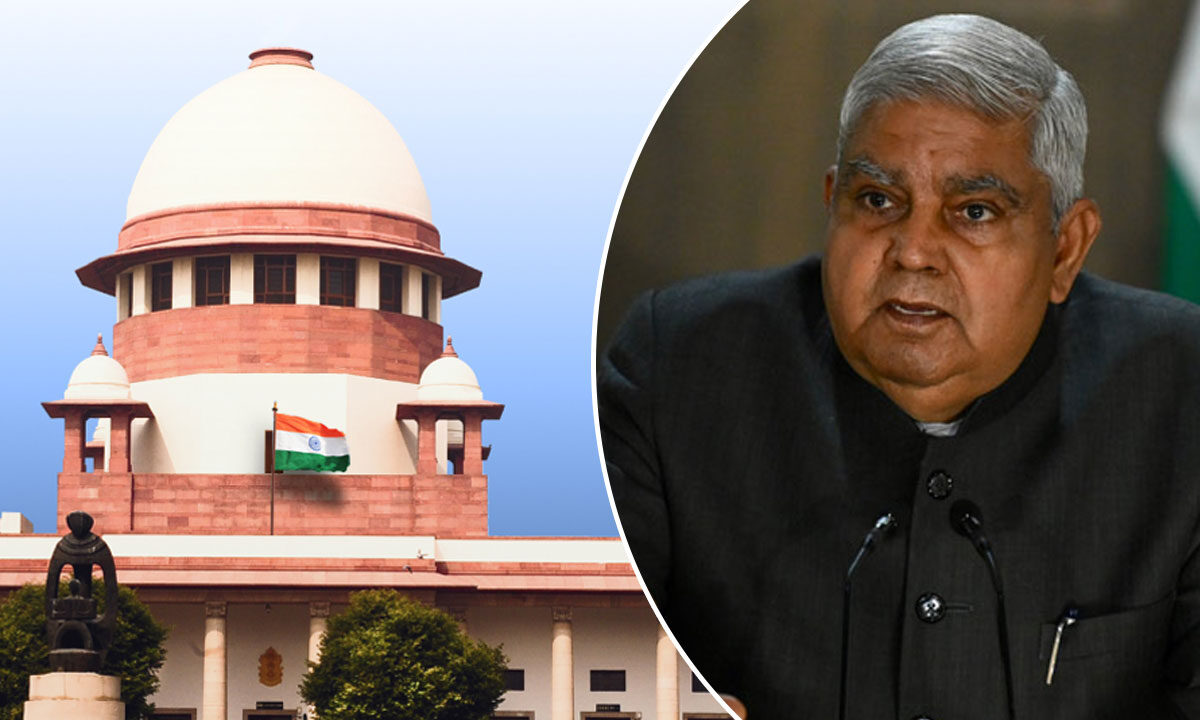Vice President Fires Back at Supreme Court: ‘Courts Can’t Command the President’
Vice President Jagdeep Dhankhar has issued a stern rebuke of the Indian judiciary, criticizing what he called an overreach following the Supreme Court’s recent ruling on the timeline for Presidential and gubernatorial assent to state legislation.

Vice President Jagdeep Dhankhar has issued a stern rebuke of the Indian judiciary, criticizing what he called an overreach following the Supreme Court’s recent ruling on the timeline for Presidential and gubernatorial assent to state legislation.
Table of Contents
‘Courts Cannot Dictate the President’
Breaking his silence four days after the Supreme Court’s judgment, Dhankhar declared, “We will not be in a position where the courts can dictate the President.” He further criticized Article 142 of the Constitution — which empowers the Supreme Court to pass any order necessary for complete justice — saying it has become a “nuclear-armed missile” available to the judiciary 24/7 and is being used against democratic institutions.
Background: Supreme Court Sets Deadline on Bill Clearance
On April 13, the Supreme Court directed that the President must act within three months on bills sent by state governors. The ruling came in response to the Tamil Nadu government’s petition, which challenged the delay by Governor R N Ravi in granting assent to 10 bills passed by the state assembly.
A bench of Justices J B Pardiwala and R Sudhakar noted that under Article 201, while a Governor may refer a bill to the President, the Constitution does not allow for indefinite delays. The court ruled that the President too must act within a reasonable time, clarifying that there is no scope for a ‘pocket veto’ in India’s constitutional scheme.
Executive Should Not Act as Judiciary: Court
The bench also emphasized that if the constitutionality of a bill is questioned, the executive cannot act as a judge. Instead, such matters must be referred to the Supreme Court under Article 143. This remark came after concerns that Governors were holding back bills on constitutional grounds.
Verdict Reignites Debate Over Institutional Boundaries
The Vice President’s remarks, coming in the wake of the court’s historic judgment, have reignited a debate on separation of powers between the judiciary and the executive. While the judiciary insists on enforcing accountability in legislative processes, Dhankhar warns against judicial encroachment on constitutional offices.
As the matter evolves, this tension between constitutional authorities is likely to shape future conversations on the roles and limits of India’s key democratic institutions.
